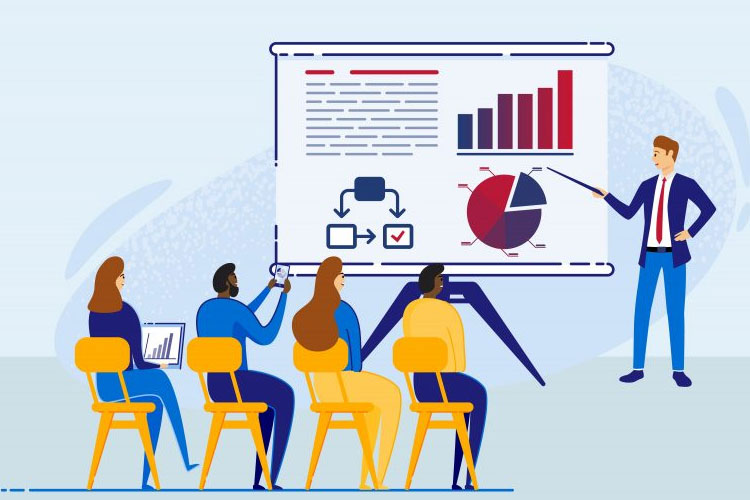
Training & Organization Development
SHR considers 'Training an integral and necessary part of its Human Resources Development universe. Training is the fabric which holds human asset management together. Our training programs are geared to address senior managers, middle level managers, junior executives as well as front line staff.
SHR goes to great lengths to ensure that the training modules and workshops, designed and implemented by their team, are relevant, practical, effective and well organized. The curriculum is created, keeping the customers requirement in mind. SHRs resource base and domain knowledge are a result of the years of real time experience of its core team as well as associate consultants.
SHR encourages its customers to work with them on long term sustainable programs, which not only ensure continuity, affectivity and re-usability but also ensure that their efficacy can be monitored and measured. Our team is capable of putting together customized modules to suit your requirements at fairly short notice, as some of our customers will endorse.
Training and Organization Development (OD) are two critical components of human resources management that aim to improve the performance, efficiency, and effectiveness of individuals, teams, and the entire organization. Let's explore each of these areas:
Training: Training refers to the process of imparting knowledge, skills, and competencies to employees to enhance their job performance and capabilities. It can take various forms, including workshops, seminars, on-the-job training, e-learning modules, and mentoring. The primary objectives of training are to:
Improve employee skills: Training helps employees acquire new skills and knowledge relevant to their roles, ensuring they can perform their jobs better.
Enhance productivity: With improved skills, employees can be more efficient and effective, leading to increased productivity.
Adapt to changes: Training also enables employees to adapt to technological advancements, changes in work processes, and new industry practices.
Boost employee morale: Providing opportunities for skill development shows that the organization values its employees, leading to higher job satisfaction and retention.
Address weaknesses: Training can address specific weaknesses identified through performance evaluations, ensuring employees have the necessary support to improve.
Organization Development (OD): Organization Development is a broader and more strategic process that focuses on enhancing the overall effectiveness and health of the organization. It involves planned, long-term efforts to improve an organization's processes, culture, and structure. The key goals of OD include:
Enhancing organizational performance: OD initiatives aim to optimize processes and systems to achieve better outcomes.
Cultivating a positive culture: OD focuses on creating a healthy and inclusive work culture that promotes employee engagement, teamwork, and innovation.
Managing change: OD helps organizations adapt to changes in the external environment and internal dynamics more effectively.
Aligning strategy and structure: It ensures that the organization's structure aligns with its strategic goals and facilitates efficient operations.
Developing leadership: OD may include leadership development programs to nurture effective leaders at all levels of the organization.
In summary, training is a targeted and focused effort to build specific skills and competencies among employees, while Organization Development is a more comprehensive, strategic approach to improving the overall effectiveness and functioning of the organization as a whole. Both training and OD play crucial roles in the continuous growth and success of businesses and can complement each other when implemented in harmony.
Some of our Core programs cover the following topics:
- Lateral Thinking
- Stress Management
- Time Management
- Internal Customer Satisfaction
- Motivation
- Customer Relations
- Ethics and the Organization
- Personality Development
- Basic Life Support
- Managing Work Pressure
- Body Language
- Social Etiquettes

